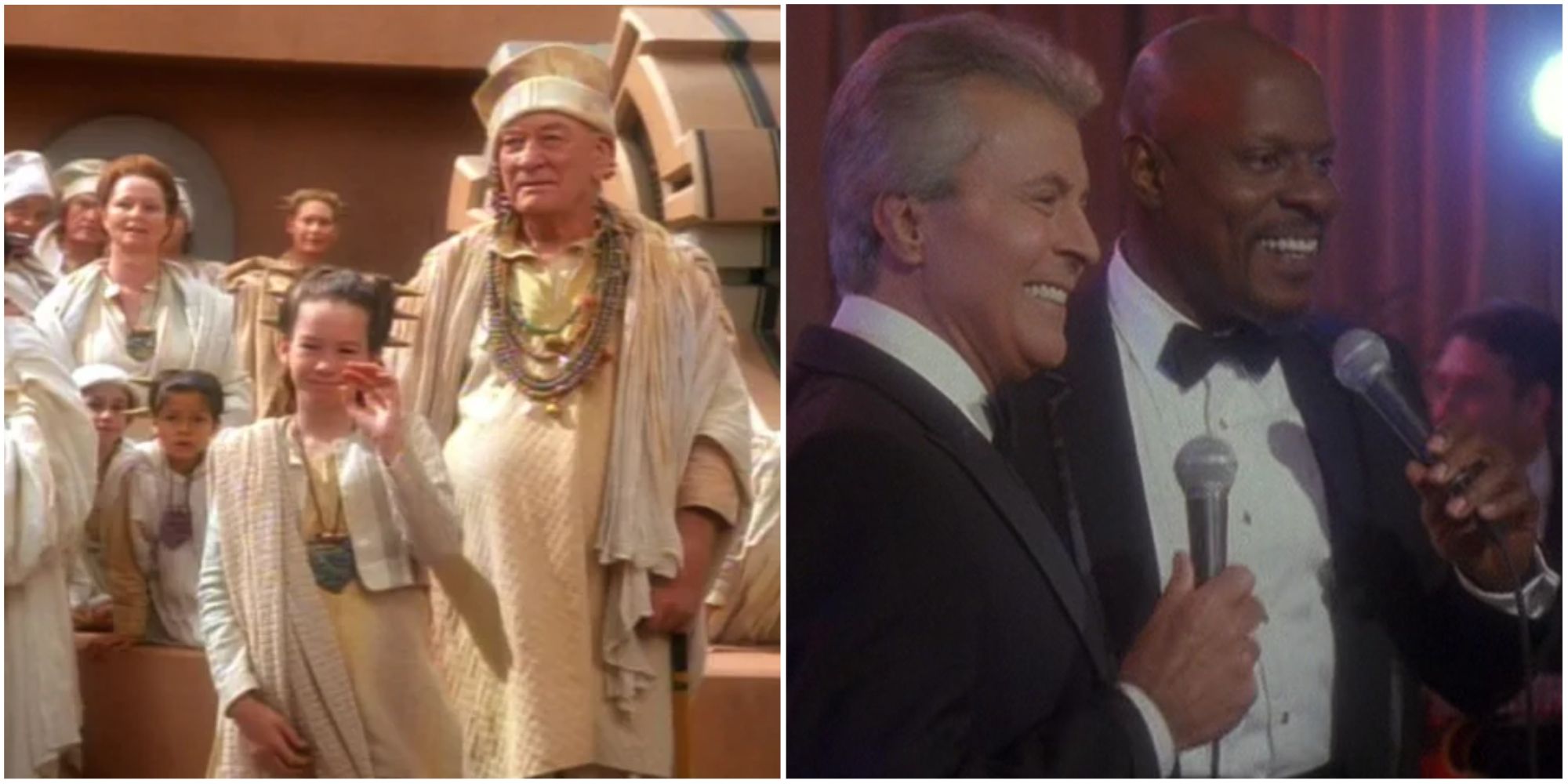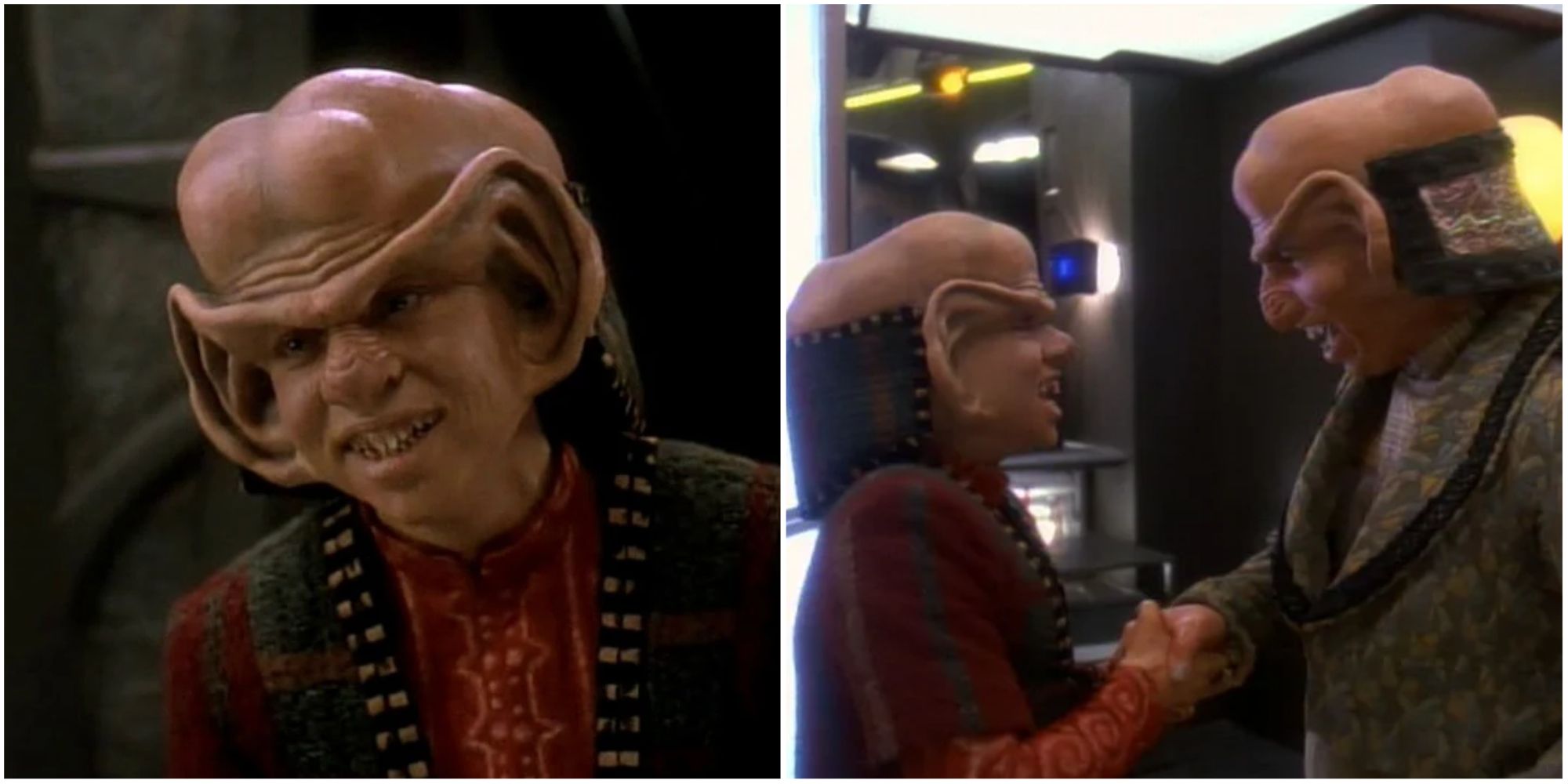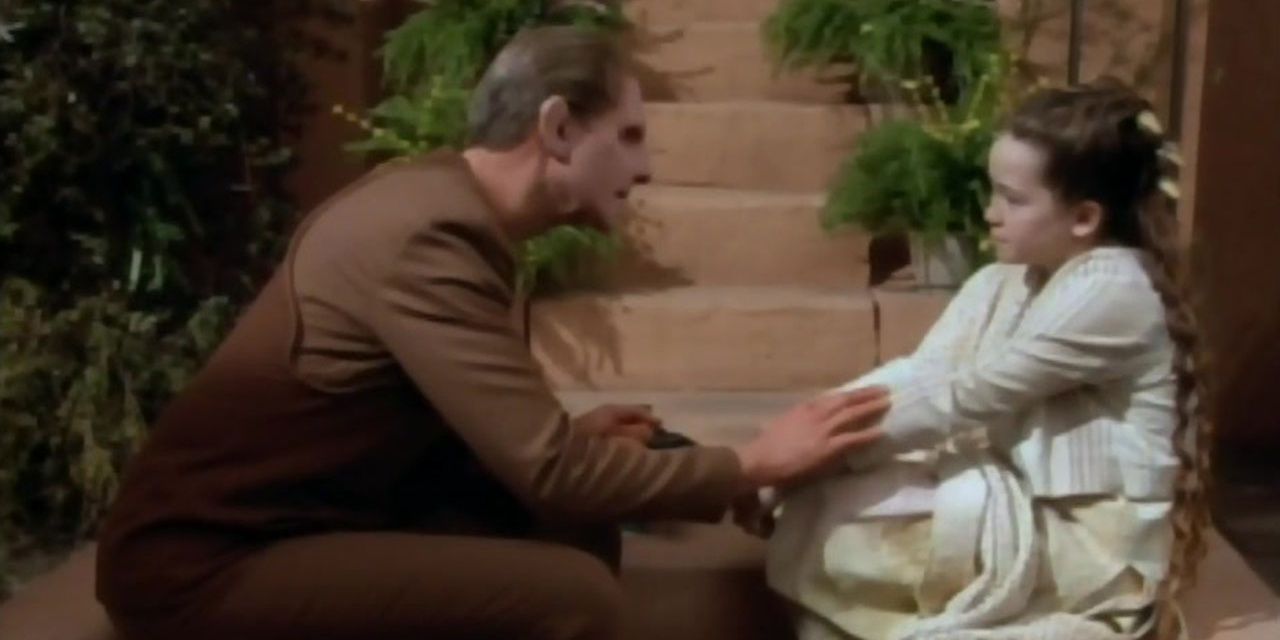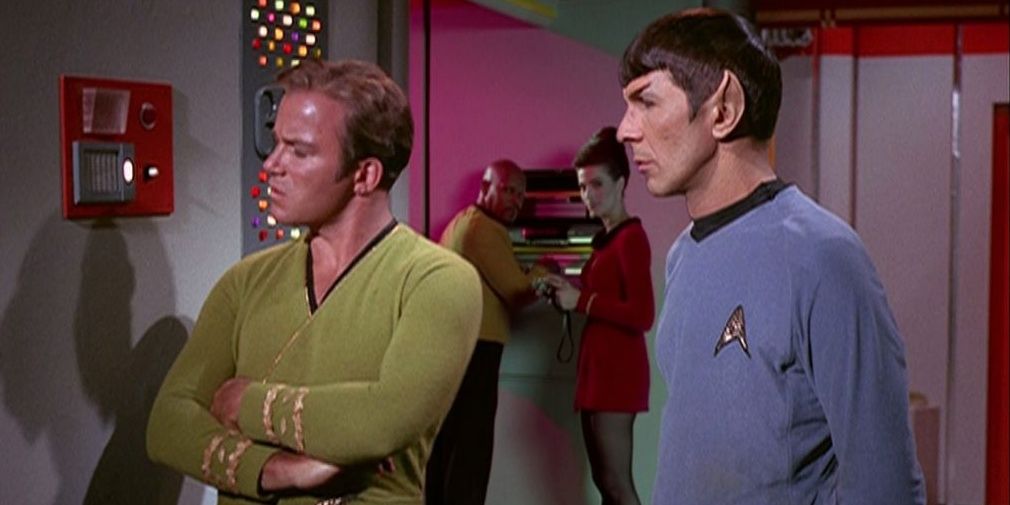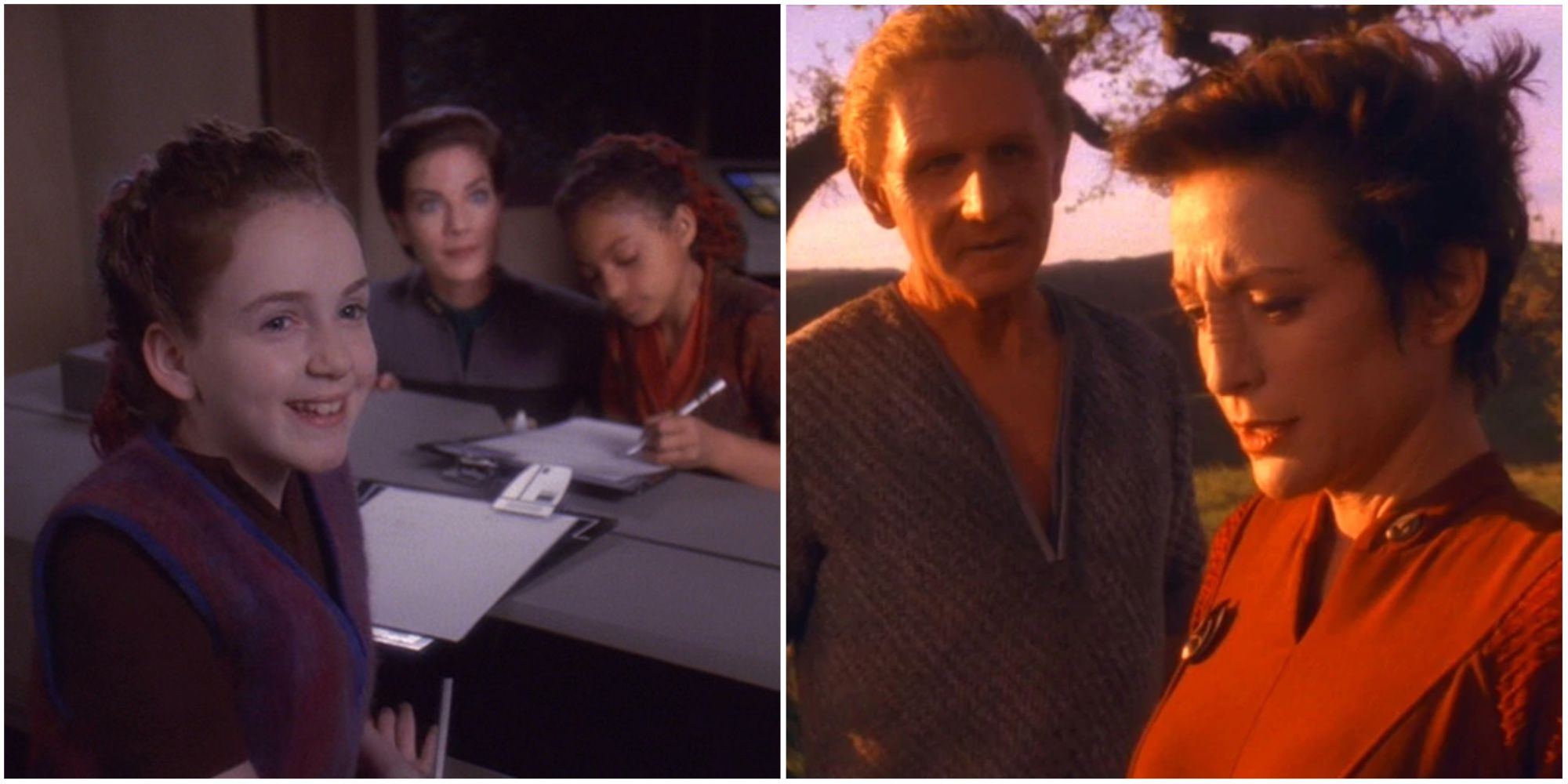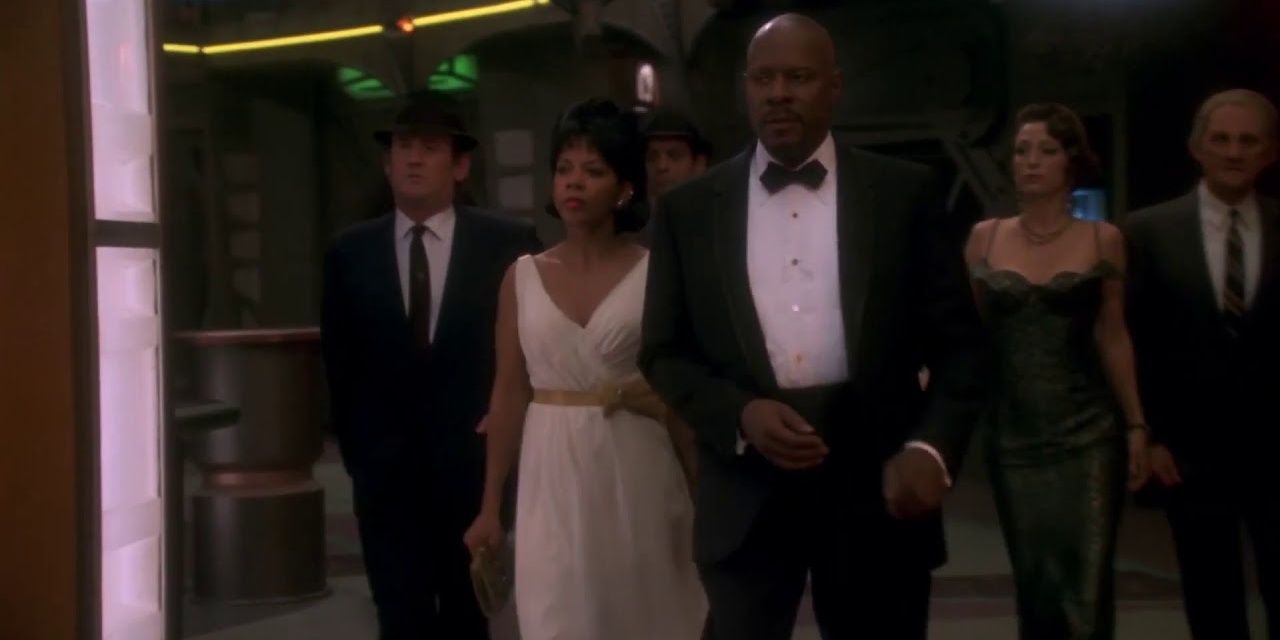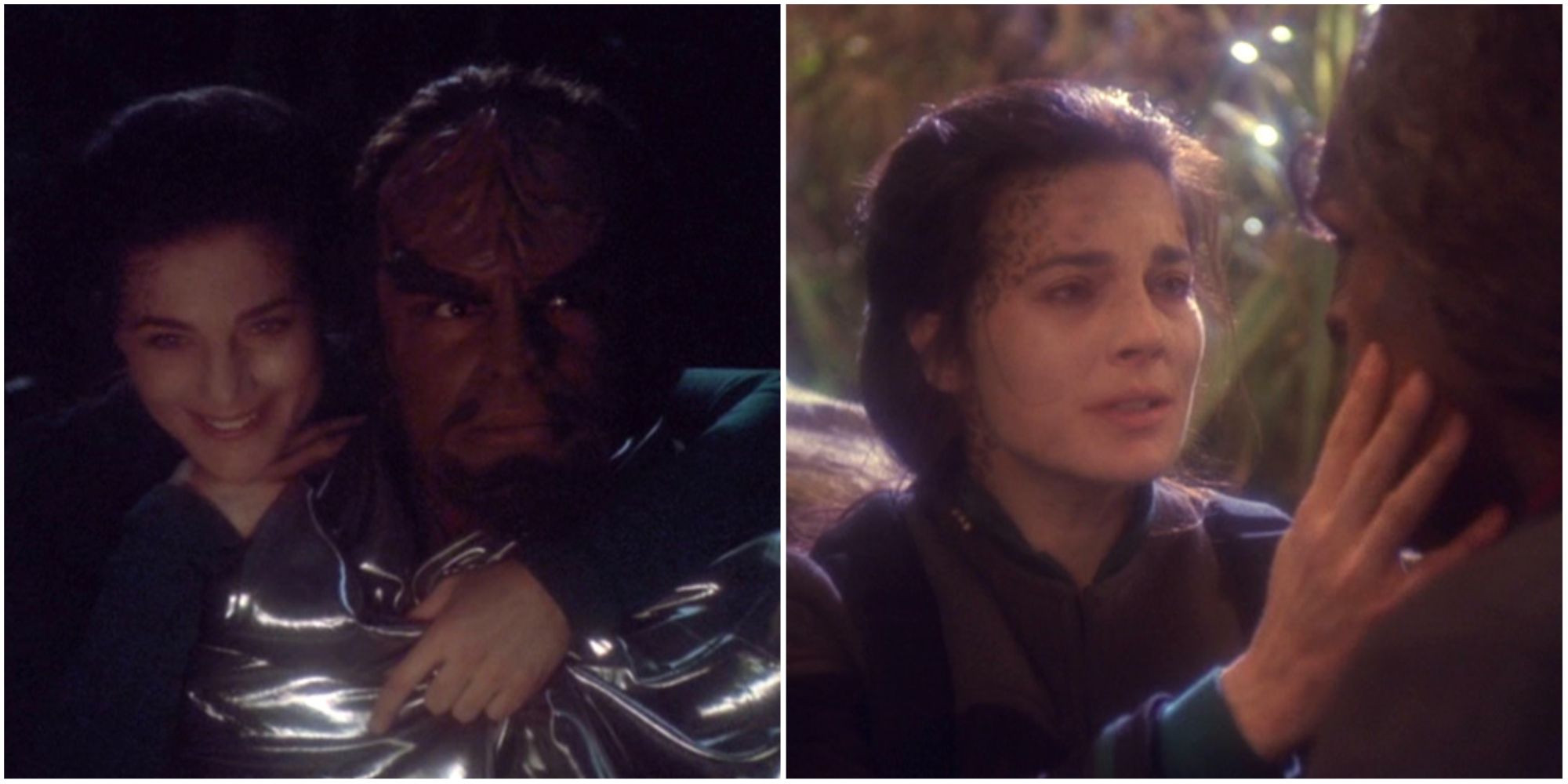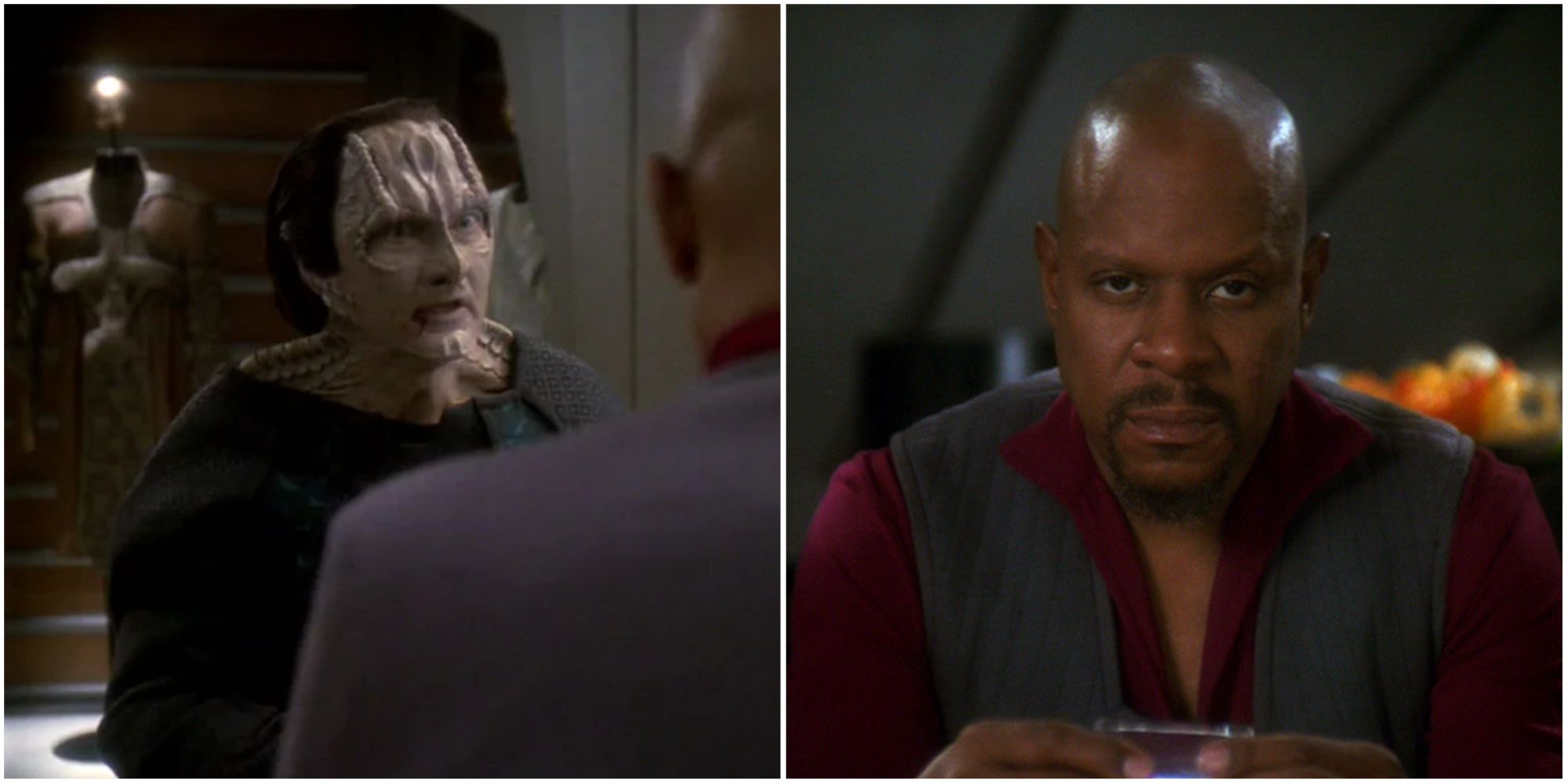Like most Star Trek series, Deep Space Nine has plenty of great episodes. However, most of respected ones have to do with the Dominion War, a galactic conflict which came to define the show. The themes it spawned cut to the heart of what Star Trek is, and it resulted in some thrilling action scenes to boot. That said, the series has much more to offer.
Deep Space Nine also sees memorable episodes away from front lines. Some still concern the war to some degree, but many go in entirely different directions. Because of that, these stories should stand in the same high regard, as they have equally potent messages about the human condition.
7 "Heart Of Stone"
Nog was mainly comic relief in the show's early years, and this episode appears to continue that trend. To everyone's shock, the little Ferengi announces his desire to join Starfleet. Further, he wants Sisko's recommendation for the Academy, pestering the commander with gifts according to Ferengi custom.
Many believe it's simply a prank or phase, but Nog eventually confesses that he wants to make his life worthwhile. He lacks the business instincts of successful Ferengi, so his career would hit a dead end if he sticks to the traditional path. This course correction marks a dramatic shift in the former troublemaker. The episode winds up painting Nog as a more sympathetic and introspective character than fans gave him credit for. In doing so, it lays a valuable foundation for his advancement going forward.
The same goes for his dad. Rom has always been pushed around by his business-savvy brother, Quark. Once he sees his son's resolve, however, he stands up to Quark for the first time. It's a great moment which demonstrates his own kindhearted nature and increasing confidence. Like Nog, it paves the way for further development.
6 "Shadowplay"
AI portrayals are usually pessimistic and fearful. Even positive examples treat it as a dead end for further creation. Deep Space Nine says, "Nay!", to that idea with this episode. It features the heroes encountering a village of farmers. The folks are quaint and unassuming, but they're soon revealed to be holograms created by one guy. He was stranded a while back and activated these people for companionship. Now that he's rescued, he prepares to shut them down.
Before Rurigan pulls the plug, Odo of all people stops him. These villagers have lived entire lives and built their own culture, even producing holographic children not in their original programming. Their existence is real to them; he has no right or reason to deprive them of that. In the end, they continue on with their peaceful colony. This outcome is refreshing in its optimistic view of AI. It can be a legitimate form of life, capable of not just evil, but wholesome innocence and sustainability. It's not the last time the show expresses this perspective.
5 "Trials And Tribble-ations"
This episode truly illustrates how Star Trek varies in both tone and aesthetic. It sees the crew chase a criminal through a portal, and they arrive in the time of the original series. Specifically, they warp back to a sillier episode: "The Trouble with Tribbles."
This sets the stage for a farcical and fun blast from the past. Not only is it amusing to watch the DS9 crew adopt the more colorful fashion of the preceding show, but their various takes on the period are endlessly entertaining. The creators accomplish this by weaving the footage and narrative beautifully into the aforementioned episode. Even today, the merging is practically seamless. It really looks like Sisko and company are interacting with Kirk and his crew. That alone is worth watching, especially for longtime Trekkies.
4 "Children Of Time"
Here's another tale involving time travel, but it's far more tragic. The episode traps the heroes on a planet with their own descendants. They learn that, in a failed escape attempt, they will travel back two hundred years and live out the rest of their days on said planet. The only one still around is Odo, who is older and more relaxed than his present counterpart. This leads him to finally confess his feelings for Kira, as he knows that she will die of disease after the crash. This heartwarming scene has a bittersweet payoff, though.
After the characters resolve to stay the course and ensure their descendants are born, the older Odo secretly fixes the ship's problem and ensures their successful departure. His action saves Kira and the others, but it blinks several generations of people out of existence. It's a grim reminder of time travel's dangers and raises questions about the true implications of one's choices. Would the present Odo commit the same act after a different upbringing? Are people creating or destroying potential life with each decision? Such existential and determinist issues are uncomfortable, but they definitely make audiences think. Ultimately, that's one of the core pillars of Star Trek and sci-fi as a whole.
3 "Badda-Bing, Badda-Bang"
After previous run-ins with AI, the heroes eventually get their own home-grown holographic buddy. Created by Bashir, Vic Fontaine runs a snazzy nightclub program and eventually gets his own holosuite to remain active all the time. Unfortunately, a mobster takes over, so everyone pitches in to help. Their plan involves a high-class heist straight out of a pulpy noir flick.
The enjoyment speaks for itself. Viewers don't often get all the characters together in one place. Thankfully, the episode involves not just crewmembers, but recurring faces like Kasidy and Leeta. They all get their moments to shine, but the most affecting features Sisko. He initially frowns on the program for "rewriting history," but he comes around. His turn culminates in a great duet between him and Vic. What better way to cap off a classic caper?
2 "Change Of Heart"
Worf has always been a stickler for the rules. He carries out his duties without fail and feels tremendous honor when his accomplishments help him rise through the ranks. His unlikely romance with Jadzia Dax turns all of that on its head. She challenges his stubborn nature and forces him to adapt to situations he's not comfortable with. No better episode emphasizes that than this.
A mission to meet a Dominion defector goes sideways, leaving Worf and Dax struggling for survival in the jungle. The Klingon must soon choose between finishing the mission and saving her. He picks the latter.
The choice costs them the informant and destroys his chance at a future captaincy, but he doesn't regret it. This poignantly shows the depth of his love and how far he's advanced in empathy. No matter how desperate a conflict gets, people can't lose their humanity, even if said humanity comes from unexpected places.
1 "In The Pale Moonlight"
This episode stirred up a slew of controversy upon airing, as it goes against the fundamental theme of Star Trek. Knowing they'll lose the war, Sisko resolves to recruit the cold-hearted Romulan Empire. Past alliance attempts have failed, so the captain now goes the retaliation route. Bringing former spy Garak for help in his clandestine plot, he fabricates a recording of the Dominion leaders plotting to attack the Empire. Sisko must then cover up more and more crimes until his enigmatic ally assassinates a Romulan senator, thereby covering their tracks and selling the deception.
The captain is understandably appalled at these events yet ultimately doesn't regret them, which is what makes the episode so bold. Sisko treats these actions with the gravity they warrant, but he gets away with them and achieves the desired result: winning the war. Many governmental or military actions are swept under the rug, particularly in times of chaos and conflict. More importantly, the dirty deed exemplifies the compromises some people must make in the face of that conflict. Enough pressure can push even the most altruistic people to this. The same way, the ideals of a utopian franchise like Star Trek can crumble when under threat. Both the episode and the show excel at this theme, earning their subversions and paying them off brilliantly.

